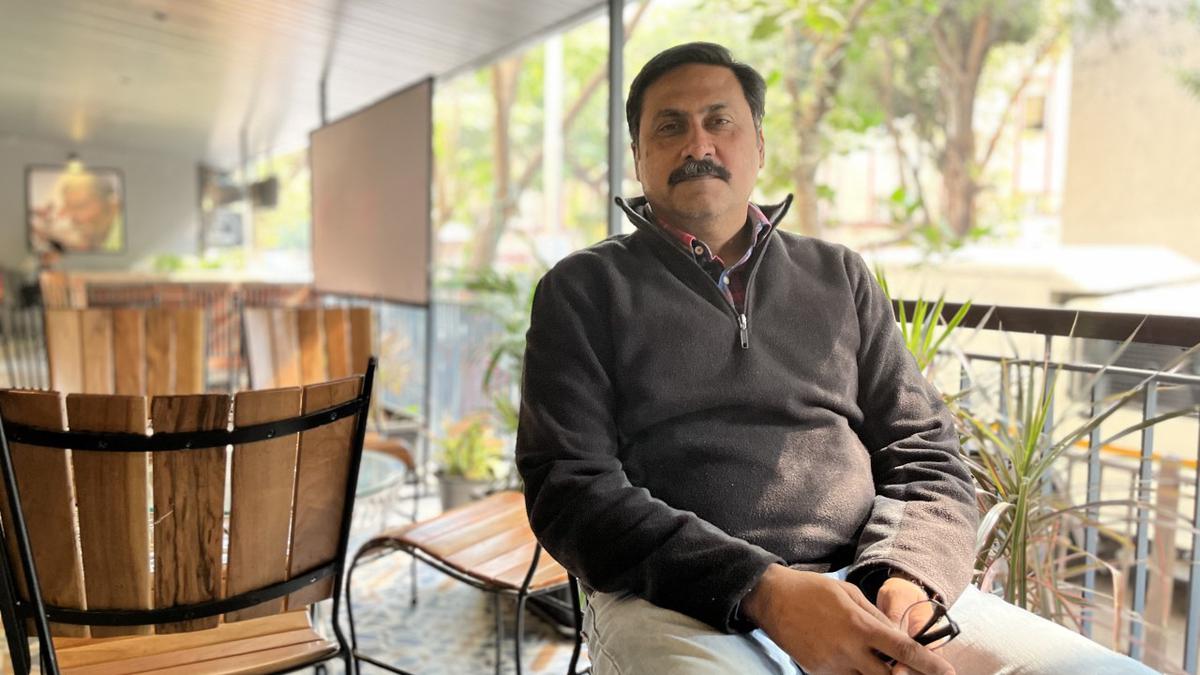
Asif Iqbal’s love lessons
The Hindu
Asif Iqbal, the no-nonsense love guru, helps when your right to choose a life partner is seen as a ‘law and order’ issue
Asif Iqbal has been handholding Indian lovers for 18 years. Be sure, be financially independent, don’t marry secretly, he advises them. “I tell them love with your heart, marry with your head,” Iqbal, 51, says. “Don’t cede your ground or give up your beliefs and convictions so easily. Don’t force anyone, accept the other’s ideas, have space for dialogue, and not a monologue. The success of your relationship is based on equality.”
ALSO READ Person of interest | Andaleeb Wajid: the story weaver
He’s the no-nonsense love guru — empathetic yet extremely practical — couples can turn to in these divided times. He knows his way around the justice system and has experienced, first-hand, how families react when their progeny pick their own life partners instead of compliantly waiting for their parents to find the ‘perfect fit’, using the worn Indian compendium of caste, creed, class and colour. Collective choice takes priority over individual choice in Indian families, he says pragmatically.
Not only did he and college mate Ranu Kulshrestha have to battle his family, they had to contend with a self-censoring sub-divisional magistrate in Noida, Delhi, who refused to accept the paperwork for the couple’s proposed marriage under the Special Marriage Act. The nearly 70-year-old law, though flawed, is used by interfaith and intercaste couples to solemnise their love. The official said an Iqbal marrying a Kulshrestha would become a ‘law and order’ issue.
All these years later, as the country hardens its stance against such love, criminalising interfaith marriage in many States, Dhanak of Humanity, the non-profit that Iqbal and Kulshrestha set up in 2005, five years after they married, to help interfaith, intercaste and LGBTQIA+ couples, finds itself a prime witness to a hateful storm. Keeping with the times, it now describes itself as an organisation against forced marriage and honour crimes.
In June, Iqbal is organising a seminar on why natal family violence should be recognised as an honour crime.
Iqbal has just read a piece in The Indian Express about at least 50 ‘ Hindu Jan Aakrosh Morcha’ rallies that have been held across Maharashtra since November against ‘love jihad’ and other Islamophobic conspiracy theories. “Things are bad and deteriorating,” he says. “The damage that this is going to do and the perception it will create will make things even more difficult for couples.” Already, the number of couples that call Dhanak for help has fallen dramatically this past year.

“He travels fastest who travels alone”. M.V. Murthy has substantiated that thought from Rudyard Kipling. In 12 years, he has set 8,125 saplings in soil and seen them through to maturity. He has gone it alone — at multiple levels. No volunteers to work shoulder to shoulder with. No fundraising to support the purchase of native-tree saplings and tree guards. The only “volunteer” who tags along with Murthy on every tree-planting spree is his steadfastly loyal Honda Activa. The only source of funding is his wallet. At 5.30 a.m., when people are snoozing alarms, Pasumai Murthy (as he is popularly known) ranges around some Chennai neighbourhood, a plastic pot filled with water lodged in the wide floorboard of his step-through scooter After serving the saplings their “breakfast”, he gets his own, and around 9 a.m., the Activa is headed to his workplace, which lacks a fixed address. An assistant manager with Ramaniyam Builders, he is not desk-bound, his brief requiring him to visit construction sites. While strapping on the ratchet-type safety helmet, he puts on an invisible green cap. During the visits to those work sites, his mind maps spots where the Chennai sun stings the hardest, shadows being scarce. These are stark landscapes devoid of trees to offer respite from a glaring sun. In May 2013, at Vannanthurai junction, not far from his diggings in Vannanthurai in Adyar, the absence of something familiar made him acutely aware of it. A stand of trees had been removed on account of road expansion. A couple of children ran barefoot on baking tar. Elders leaned helplessly against sun-scorched compound walls. “That moment hit me,” he says. “If we can cut down trees in a day, why not grow them with equal urgency?” On August 15 that year, at Adyar Junction, he hoisted the national flag, distributed sweets, and planted 15 saplings. He was not doing anything radical, only following a rule that seldom budges from the paper it is printed on. For every tree that is felled on account of development, ten others need to be planted. People could process tree-planting exercises by groups, but not by a lone wolf. Sneers came his way; he smiled them off. He recalls being ridiculed by visitors to a Corporation gym while planting saplings at Besant Nagar beach. Now, he counts those same faces among his host of supporters, his consistent efforts to plant saplings and water them earning him their admiration. The admiration derives in part from the fact that he digs into his own pocket to keep this service going — well, growing. At a time, he buys a bundle of net-type material costing ₹1,700 out of which 25 tree guards can be made, on an average. For support to those tree guards, he buys 50 iron rods (thick and six feet long) which set him back by anywhere between ₹5000 and ₹6,000 depending on their weight. And he buys saplings from a nursery in Akkarai where he is assured of a discount by virtue of being a long-time buyer. Obviously, given the financial sacrifice all of this entails, he has got buy-in from his family to do this service. Being reasonable in the allocation of time has helped him win them over: the first half of every Sunday he reserves for tree-planting and the course of the second half is scripted by his wife Maria Priya and his daughter Meha M. He has received a doctorate degree from the The Academy of Universal Global Peace for this work.





















 Run 3 Space | Play Space Running Game
Run 3 Space | Play Space Running Game Traffic Jam 3D | Online Racing Game
Traffic Jam 3D | Online Racing Game Duck Hunt | Play Old Classic Game
Duck Hunt | Play Old Classic Game










